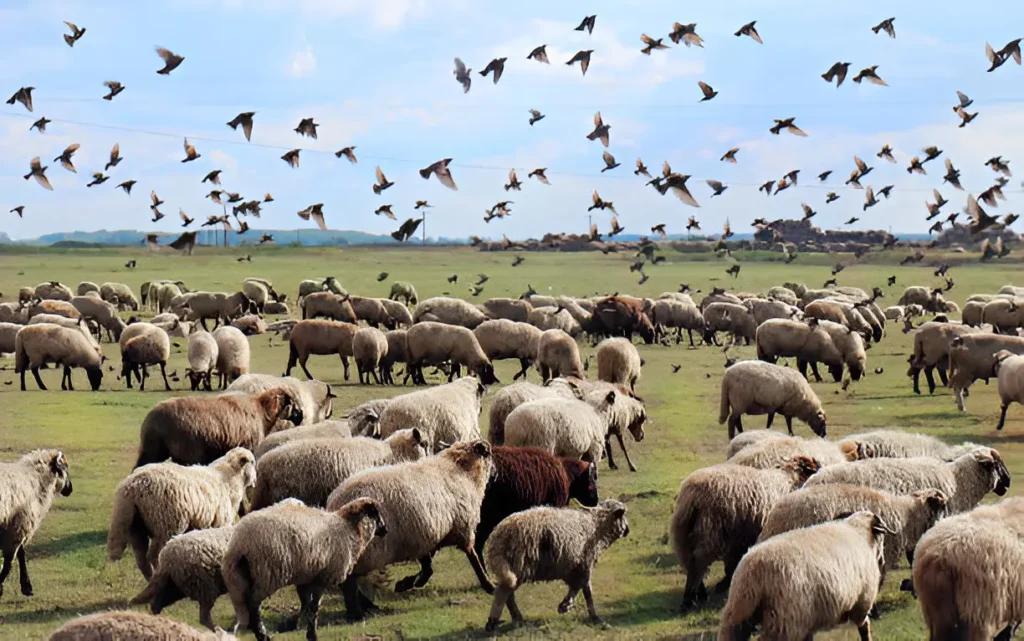Are you in the awkward position of seeing your hens either act out against one another or completely shut down? Keeping chickens means more than giving them food and shelter. They require a sufficient amount of space to stay active, healthy, and happy. When the space constricts them, chickens exhibit certain behaviors and appearances that indicate they are uncomfortable.
If you have noticed any changes to your hens’ behavior recently, it may very well be your flock saying, “We are too cramped; we need more room!” Let’s examine a few specific warning signs that indicate you need to expand your chicken run to allow your birds to stretch out, forage, and be their very best.
Increased Pecking and Aggression
One of the first signs of overcrowding is aggressive behavior. Chickens will start to peck at one another when they do not have enough space, and typically, the weakest members of the flock or the younger birds are at the most risk. Aggressive pecking can lead to feather loss, open wounds, and stress for the entire group.
The pecking order may have become more pronounced, which in turn can lead to less common sense among members, thus making daily conflicts much harder to address. If you find that you are constantly dealing with squabbles and bickering, it’s a definite sign that the flock is congested.
Drop in Egg Production
When hens are stressed, the first thing to suffer may be their egg-laying rhythm. Close quarters cause anxiety and disrupt laying and nesting behavior. You may notice a decline in egg production, eggs that are irregularly sized, or eggs of lesser quality (shell quality).
Other factors may lead to egg production declines (including age or weather), but a flock that becomes inactive all of a sudden is often a result of crowding. A large chicken run allows hens to access and exhibit natural behaviors, which supports natural laying and nesting habits.
Restless Pacing or Repetitive Activity
Chickens are very active animals, pecking, scratching, and walking. Still, when chickens repeatedly move in the same space or pace back and forth along the fence, they are typically trying to express that they are experiencing a lack of space.
While this repetitive behavior may be frustrating to you, your chickens are demonstrating that they are bored and that they want more variety and space in their day. Expanding their outdoor space may be the only option available to bring back calm and curiosity.
Feather Loss or Patchy Appearance:
If your chickens are losing feathers, and it’s not molting time, you potentially have stress-related plucking going on. It can be very stressful for birds when they are crowded, which in turn may cause them to over-preen, pluck their feathers, or lead to aggression among them.
When they lose feathers, the areas usually involve places where they are bitten and can typically be found on the back, neck, or tail. Therefore, if your chickens lose feathers and you determine that there is no medical reason for it, it suggests that your chickens require a little more space to move to allow them enough room to escape what could have been tension.
Avoiding Nesting Boxes or Roosts:
Chickens prefer their comforts and routines, especially when laying eggs or when being acclimated to settle for sleep. Try to observe your flock. If the chickens are avoiding the nesting boxes altogether or “not going to roost” at night, these might be clues that the boxes are too cozy, limiting the hens or causing the chickens to compete for space.
Alternatively, it could be that two or more birds are competing for the same area. If your hens are nowhere to be found and have laid eggs in the strangest or most unexpected places, or if your birds are sleeping on the floor, then, without a doubt, their temperaments are starting to show that they need a way to feel safe, secure, and separated.
Persistent Mess and Noxious Smells
Even with routine cleanness, small areas subjected to deposits, moisture, and ammonia smell can soon become mired in droppings. You may see wet bedding, muddy runs, or bugs accumulating around your coop. Additionally, chickens are susceptible to poor air quality, and inadequate ventilation and congestion can lead to respiratory issues. Allowing your birds to expand your outdoor area and providing birds with more places to go will keep your entire area dryer, fresher, and healthier.
Chickens Gathering at the Gate or Fence Line
If your birds always seem to be hanging around the coop door or crowded along the edge of their run, it is easy to assume they want more room (they may also appear to “beg” to get out). That behavior reflects a lack of stimulation or variety in their existing environment. In a large chicken run, birds have more space to roam and don’t feel as confined, allowing birds to exhibit more independence and be overall more satisfied.
Conclusion
Chickens are communicative animals when it comes to their behavior, and overcrowding is one reason they can be noisy. Next time you see your birds pecking at each other, pacing, or their egg production dropping, just remember that this is us saying they are calling for more space. If you build a large chicken run, you’re providing them with more space and a better life. When chickens can stretch, trot around, and forage for bugs safely, they don’t just survive; they thrive. That means everything in having a happy and productive backyard flock.
Also Read-Why Small Businesses Are Adopting Pi Cryptocurrency


